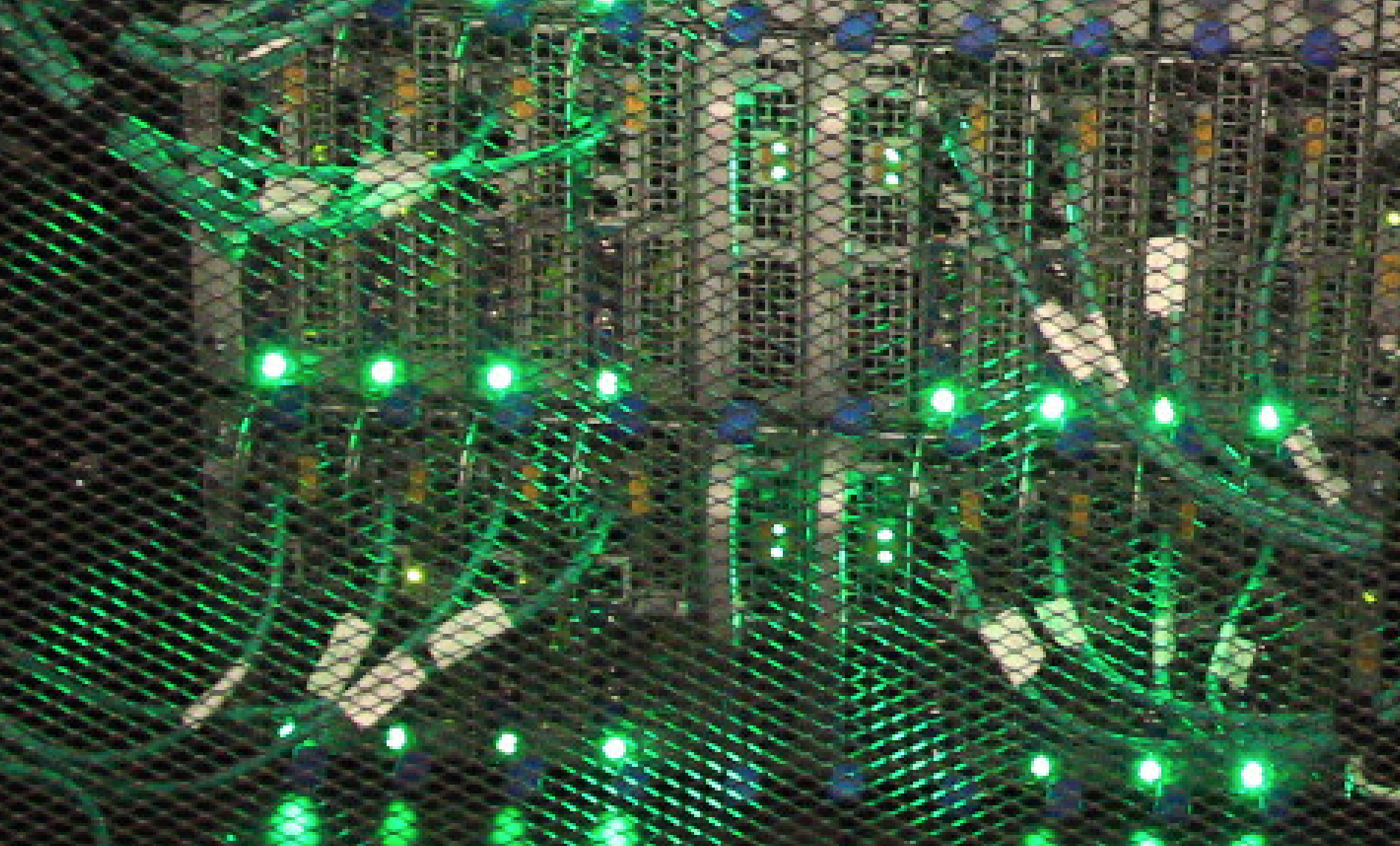
Story by Helen Hill for MGHPCC News
The operating model for MGHPCC is as a specialized landlord for computers from the 5 partner universities. The building provides state of the art facilities to house, power, climate-control and connect, tailored to the needs of big data users on different campuses. With the ribbon cutting behind us MGHPCC is in the process of welcoming its first tenant, among them the BU IT team.
In this round the BU team were installing 64 compute nodes with 16 cores each for a total of 1024 cores, as well as a dozen or so additional computers which will provide various services (e.g. login servers, file servers, management servers). This first installation is all new equipment. The new compute nodes are Dell C8000 with dual Sandy-Bridge processors using a variety of network interconnects, FDR InfiniBand, 10 GigE and plain old GigE. The storage is based on IBM's GPFS parallel file system and Dell disk arrays.
In the coming months the team will also be moving a few thousand additional cores from existing on-campus clusters to the MGHPCC.
Like all of the other member universities, BU has a 10 Gb/s ring from Holyoke to their campus. Over time they will migrate data for their existing storage arrays to the new facility. The recent installation includes about 0.5 PB of storage.
BU, along with Harvard, operates one of the three so-called Tier 2 Centers in the U.S. for the ATLAS project. ATLAS is one of the two large detectors at the Large Hadron Collider (LHC) at CERN. As you likely saw in the news several months back, both LHC experiments, ATLAS and CMS, reported evidence of detection of the Higgs boson. The data from the LHC is distributed to the Tier 2 and Tier 3 centers for analysis and it was this analysis that lead to the discovery.
The Tier 2 computing at BU comprises a dozen racks of compute and storage. These will be moving to the MGHPCC at the end of March.
BU has over 500 users from dozens of departments across the university. The disciplines using BU's computing facilities include not only the usual suspects in the physical sciences, but also such diverse fields as music, theology and anthropology. The new computational facilities at the MGHPCC will also be supporting the computational needs from their Medical campus.
Once the systems are stabilized the team will put out a call for "Friendly Users" from their existing community to start testing their codes in the new environment.